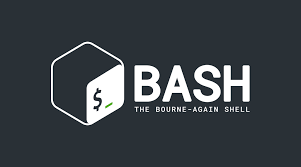
Bash for Hackers
Bash (also known as the Bourne Again Shell) is an open-source, cross-platform Unix shell and command language. It’s been a staple in the hacking community since the early days of GNU/Linux and continues to be a valuable tool for developers and hackers. Bash can be used to perform a variety of tasks, from simple commands to complex scripting.
For hackers, using Bash has numerous advantages. Bash provides an interface between operating systems that allows users to access local resources, such as files and folders as well as applications and programs running on the same computer or remote machines. This makes it perfect for automating mundane tasks like downloading files or backing up data. Not only does it save time but also reduces errors associated with manual workflows. It also simplifies data processing tasks by allowing users to directly access multiple sources of information at once.
Complex hacks frequently involve a combination of programming languages, libraries and environment variables, but with bash these combinations can be put together quickly and easily. By writing shell scripts, hackers can create automated programs which make large scale attacks possible in shorter periods of time than would otherwise be required when doing things manually.
The syntax for Bash is pretty straightforward compared to other shells like zsh or csh - which means it’s suitable even for beginners – however experienced hackers may find more features with advanced shells like zsh or fish. Additionally, because Bash is widely used in popular Linux distributions such as Ubuntu or Debian, most hackings tools are written using this language so you’ll often need to use it in combination with other hacking tools. Other security applications may be written using Python 3 or Perl but these tend to offer more limited features than what is available with Bash scripting due its flexibility when creating complex logic structures within scripts using loops and conditions.. From Metasploit modules being written using Ruby 7 codebase through port forwarding operations done effectively with sshrc implementation all the way up managing entire infrastructures via Cloud Computing API’s requires one thing - powerful scripting backed by memory efficient programming languages , cause any system admin knows that no matter how good their hardware gets , ultimately there’s still finite computing power given input amount of resources so optimizing scripts correctly is essential if you’re goal isn’t only doing a task but reusing codebase saving time energy down the line .
All in all , regarding shell programming there’s no question that bash has its uses , whether you’re dealing with short simple commands outputs from grep text processing combined together probably into multiple functions all tightly woven together while completing some complex task - beside the obvious true “standard” aka sh , bash really shines when comes down not only efficiently looping programming elements but also when having centralized control over different security protocols implemented throughout an IT infrastructure differently configured under distinct Operating Systems working together without issues . In conclusion , writing a bash script – even for experts – probably won’t break any speed records; however Bash will save you lots of time when performing manual operations .